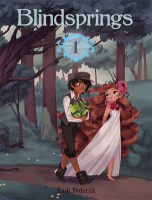My News and Reviews
Although I’ve started to include Quick Takes of novels as part of the weekly My Week in Manga feature, it’s been a little while since I’ve actually written and in-depth review of a novel here at Experiments in Manga. However, last week featured my review of Tomoyuki Hoshino’s ME, one of my most anticipated literary releases of 2017. Much like the rest of Hoshino’s work available in translation, ME is challenging and can demand quite a bit from the reader, but I found it to be worth the effort. The novel is an incredibly surreal but thought-provoking exploration of identity, self, and society. Hoshino’s fiction definitely isn’t for everyone, but I hope to see even more of it translated in the future.
Last week there were also some manga-related licensing announcements made at the San Diego Comic Con. Among other things, Udon Entertainment has picked up Virginia Nitōhei’s manga adaptation of Otherwordly Izakaya “Nobu,” will be adding Romeo & Juliet, Adventures of Tom Sawyer, and Adventures of Huckleberry Fin to its Manga Classics line, and will be releasing Mega Man MasterMix, a full-color edition of Hitoshi Ariga’s Mega Man Megamix. Vertical Comics will be publishing Kinoko Natsume’s Chi’s Sweet Adventure, a spin-off of Konami Kanata’s Chi’s Sweet Home. And finally, Viz Media announced that it would be releasing Tsuyoshi Takaki’s Black Torch, Inio Asano’s Dead Dead Demon’s Dededededestruction (I’m definitely interested in this), Aka Akasaka’s Kaguya-sama: Love is War, and Koyoharu Gotouge’s Demon Slayer: Kimetsu no Yaiba.
Elsewhere online, a recent episode of the Manga Mavericks podcast provides an overview of the licensing news from Anime Expo in addition to digging into Kabi Nagata’s My Lesbian Experience in Loneliness and Gengoroh Tagame’s My Brother’s Husband. Over at The OASG, Krystallina expresses some valid concerns and criticisms of Digital Manga’s most recent crowdfunding efforts. And speaking of crowdfunding campaigns, there have been several less dubious projects that have caught my eye recently: Deer Woman is an anthology featuring comics created by Native and Indigenous woman which are inspired by traditional Deer Woman stories; Gothic Tales of Haunted Love is a collection of full-color gothic romance comics; and then of course there’s Sparkler Monthly Magazine: Year 5 which is particularly important to me. With every year that passes Sparkler Monthly just keeps getting better and better. I’ve featured a small selection of some of the magazine’s content before, but there’s so much more that I’ve never even mentioned here and it’s all great stuff. Please consider contributing to the campaign if you’re able!
Quick Takes
 After Hours, Volume 1 by Yuhta Nishio. Recently there has been a notable surge of yuri and other lesbian-themed manga being released in English, mostly by Seven Seas, although other publishers have been licensing some as well. After Hours, for example, is the first yuri title from Viz Media if not ever at least in a very long time. That certainly caught my attention, but even more so was the fact that After Hours is not a schoolgirl manga and is instead about adult women (although the cover art does make Emi in particular look fairly young). Emi is invited out to a club by her friend but is generally left to fend for herself once she’s there. That’s when Kei more or less comes to her rescue. The two women hit it off and Emi ends up going home with Kei that night, one thing leading to another. It’s incredibly refreshing that Emi and Kei’s mutual attraction isn’t treated like an aberration or made out to be like it’s a big deal simply because they’re both women. After that first night their relationship continues to naturally develop, largely without angst, as they get to know each other better, Kei introducing Emi to her friends, the local music scene, and her passion as a DJ. The release of second volume of After Hours hasn’t been publicly announced yet, but there is no question that I’ll be picking it up; I absolutely loved the first volume and look forward to reading more.
After Hours, Volume 1 by Yuhta Nishio. Recently there has been a notable surge of yuri and other lesbian-themed manga being released in English, mostly by Seven Seas, although other publishers have been licensing some as well. After Hours, for example, is the first yuri title from Viz Media if not ever at least in a very long time. That certainly caught my attention, but even more so was the fact that After Hours is not a schoolgirl manga and is instead about adult women (although the cover art does make Emi in particular look fairly young). Emi is invited out to a club by her friend but is generally left to fend for herself once she’s there. That’s when Kei more or less comes to her rescue. The two women hit it off and Emi ends up going home with Kei that night, one thing leading to another. It’s incredibly refreshing that Emi and Kei’s mutual attraction isn’t treated like an aberration or made out to be like it’s a big deal simply because they’re both women. After that first night their relationship continues to naturally develop, largely without angst, as they get to know each other better, Kei introducing Emi to her friends, the local music scene, and her passion as a DJ. The release of second volume of After Hours hasn’t been publicly announced yet, but there is no question that I’ll be picking it up; I absolutely loved the first volume and look forward to reading more.
 Blindsprings, Volume 1 by Kadi Fedoruk. Sadly, I was unable to contribute to the Blindsprings Kickstarter campagin which raised funds to release the first print volume of the webcomic, so I was thrilled when I had the chance to pick up an early copy and chat a little with Fedoruk at this year’s Toronto Comic Arts Festival. In addition to first five chapters of the comic, the first volume also includes twenty-six pages of bonus content, artwork, and character profiles. Blindsprings is a beautifully illustrated, full-color comic with an engaging story, a diverse cast of characters, and an intriguing, complex, and well-developed world. (I especially appreciate how a variety of genders and sexualities are naturally and unobtrusively incorporated into the story.) Princess Tamaura is about to complete her 300-year agreement to serve the as an Orphic priestess for the sake of her sister, but her contract with the Spirits is broken when she is “rescued” against her will by a young man determined to prove a point. Tammy is torn from her sanctuary and thrust into a modern world in which Orphic traditions and their practitioners are harshly oppressed, the Academists and their magic now largely in control of what was her homeland. But there are still those who resist, and Tammy soon finds herself caught up in the conflict.
Blindsprings, Volume 1 by Kadi Fedoruk. Sadly, I was unable to contribute to the Blindsprings Kickstarter campagin which raised funds to release the first print volume of the webcomic, so I was thrilled when I had the chance to pick up an early copy and chat a little with Fedoruk at this year’s Toronto Comic Arts Festival. In addition to first five chapters of the comic, the first volume also includes twenty-six pages of bonus content, artwork, and character profiles. Blindsprings is a beautifully illustrated, full-color comic with an engaging story, a diverse cast of characters, and an intriguing, complex, and well-developed world. (I especially appreciate how a variety of genders and sexualities are naturally and unobtrusively incorporated into the story.) Princess Tamaura is about to complete her 300-year agreement to serve the as an Orphic priestess for the sake of her sister, but her contract with the Spirits is broken when she is “rescued” against her will by a young man determined to prove a point. Tammy is torn from her sanctuary and thrust into a modern world in which Orphic traditions and their practitioners are harshly oppressed, the Academists and their magic now largely in control of what was her homeland. But there are still those who resist, and Tammy soon finds herself caught up in the conflict.
 Tokyo Ghoul: Past written by Shin Towada Sui Ishida and illustrated by Sui Ishida. Viz Media doesn’t publish many novels outside of its Haikasoru imprint, but considering the popularity of Ishida’s Tokyo Ghoul manga series, it’s not too surprising that Towada’s trilogy of light novels were released as well. Although Past is Towada’s third Tokyo Ghoul novel (well, technically it’s more of a collection of vaguely-related short stories), the volume serves as a prequel to Tokyo Ghoul as a whole, the six chapters delving into the backstories of many of the Tokyo Ghoul‘s prominent characters. Despite taking place before the main series, Past is definitely not an introduction. It is intended for readers who are already invested in the franchise–a few of the stories don’t absolutely require prior knowledge in order to follow them, but others are nearly incomprehensible without at least some basic familiarity with Tokyo Ghoul. The general premise of Past is great, the volume allowing fans of Tokyo Ghoul the chance to spend more time with and gain a better understanding of some of the characters, especially as Past is able to tell stories that wouldn’t have immediately fit in the primary series. It’s unfortunate then that the actual writing is frustratingly awful much of the time with drama and angst frequently favored over plot developments that make logical sense.
Tokyo Ghoul: Past written by Shin Towada Sui Ishida and illustrated by Sui Ishida. Viz Media doesn’t publish many novels outside of its Haikasoru imprint, but considering the popularity of Ishida’s Tokyo Ghoul manga series, it’s not too surprising that Towada’s trilogy of light novels were released as well. Although Past is Towada’s third Tokyo Ghoul novel (well, technically it’s more of a collection of vaguely-related short stories), the volume serves as a prequel to Tokyo Ghoul as a whole, the six chapters delving into the backstories of many of the Tokyo Ghoul‘s prominent characters. Despite taking place before the main series, Past is definitely not an introduction. It is intended for readers who are already invested in the franchise–a few of the stories don’t absolutely require prior knowledge in order to follow them, but others are nearly incomprehensible without at least some basic familiarity with Tokyo Ghoul. The general premise of Past is great, the volume allowing fans of Tokyo Ghoul the chance to spend more time with and gain a better understanding of some of the characters, especially as Past is able to tell stories that wouldn’t have immediately fit in the primary series. It’s unfortunate then that the actual writing is frustratingly awful much of the time with drama and angst frequently favored over plot developments that make logical sense.
